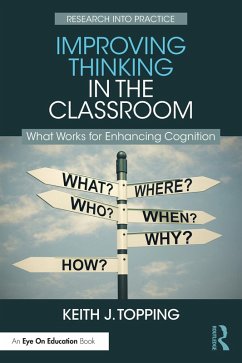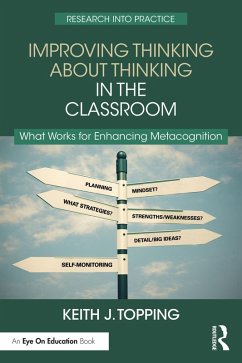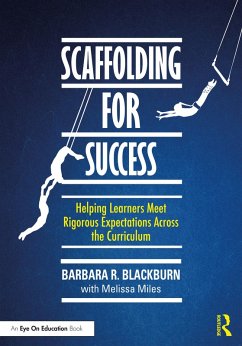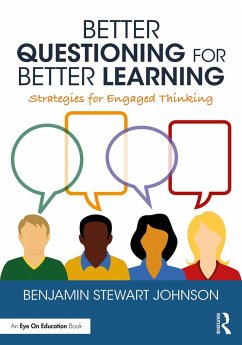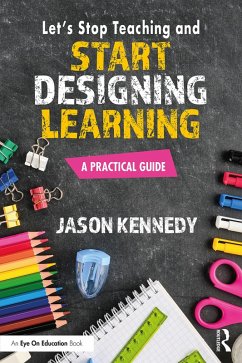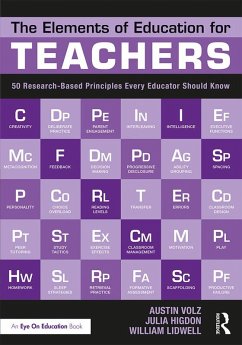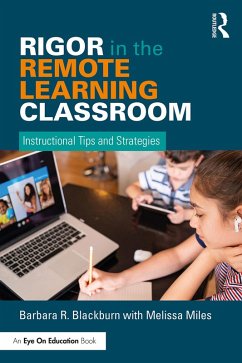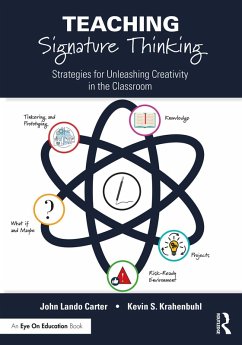
Improving Thinking in the Classroom (eBook, ePUB)
What Works for Enhancing Cognition

PAYBACK Punkte
14 °P sammeln!
Programs like philosophy for children, reciprocal teaching, problem based learning and computerized games can help students' critical and creative thinking skills, but which are most effective? This research-to-practice book showcases how you can improve the thinking (cognition) of your students, across the curriculum and beyond.Each chapter focuses on a particular program, describes the method and background research, offers examples and explains key processes in implementation. You'll learn about thinking programs within a subject, across the curriculum, outside the curriculum and those whic...
Programs like philosophy for children, reciprocal teaching, problem based learning and computerized games can help students' critical and creative thinking skills, but which are most effective? This research-to-practice book showcases how you can improve the thinking (cognition) of your students, across the curriculum and beyond.
Each chapter focuses on a particular program, describes the method and background research, offers examples and explains key processes in implementation. You'll learn about thinking programs within a subject, across the curriculum, outside the curriculum and those which can be either within or outside the curriculum, so you can choose a program which suits your context.
You'll also find out what to consider when evaluating a thinking skills program. And finally, you'll discover shared features of the methods - such as peer interaction, discourse, argumentation, scaffolding and transfer - so you can see the commonalities of the programs and think about designing your own approaches.
Whether you're a classroom teacher, department head, or other key stakeholder, this powerful resource will help you determine what really works for teaching thinking, so your students can apply such skills and thrive long after they've left school.
Note: This book is part of a set; a companion book focuses on programs for teaching metacognition, or thinking about thinking.
Each chapter focuses on a particular program, describes the method and background research, offers examples and explains key processes in implementation. You'll learn about thinking programs within a subject, across the curriculum, outside the curriculum and those which can be either within or outside the curriculum, so you can choose a program which suits your context.
You'll also find out what to consider when evaluating a thinking skills program. And finally, you'll discover shared features of the methods - such as peer interaction, discourse, argumentation, scaffolding and transfer - so you can see the commonalities of the programs and think about designing your own approaches.
Whether you're a classroom teacher, department head, or other key stakeholder, this powerful resource will help you determine what really works for teaching thinking, so your students can apply such skills and thrive long after they've left school.
Note: This book is part of a set; a companion book focuses on programs for teaching metacognition, or thinking about thinking.
Dieser Download kann aus rechtlichen Gründen nur mit Rechnungsadresse in A, B, BG, CY, CZ, D, DK, EW, E, FIN, F, GR, HR, H, IRL, I, LT, L, LR, M, NL, PL, P, R, S, SLO, SK ausgeliefert werden.




